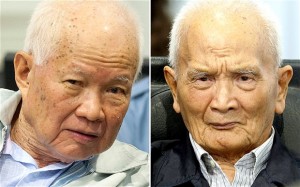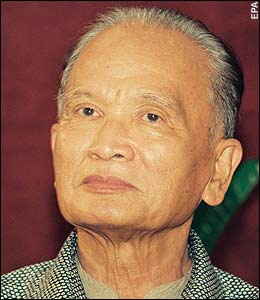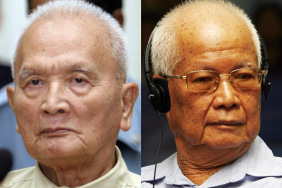
Kieu Samphan (left) and Nuon Chea
On 23 November 2016, the Supreme Court Chamber (SCC) of the Extraordinary Chambers in the Courts of Cambodia (ECCC) delivered its Appeal Judgment in Case 002/01 against former Khmer Rouge leaders Nuon Chea and Khieu Samphan.
Nuon Chea, former Deputy Secretary of the Communist Party of Kampuchea, and Khieu Samphan, former Head of State of Democratic Kampuchea, were convicted by the Trial Chamber in August 2014 for crimes against humanity committed during the forced evacuation of Phnom Penh in April 1975 and subsequent forced transfer from other areas, as well as alleged execution of former Khmer Republic soldiers in Tuol Po Chrey in Pursat Province.
Both defendants appealed the decision, asking for a reversal of the trial judgment and to be acquitted of all charges, or failing that, Khieu Samphan asked for a reduced sentenced to a set number of years. Nuon Chea submitted 223 grounds of appeal and Khieu Samphan submitted 148 grounds of appeal. Their appeal arguments related to the constitutionality of the ECCC’s Internal Rules and the fairness of the proceedings; the Trial Chamber’s approach to evidence; the Trial Chamber’s findings relevant to the crimes for which the accused were convicted; and the accused’s individual criminal responsibility.


